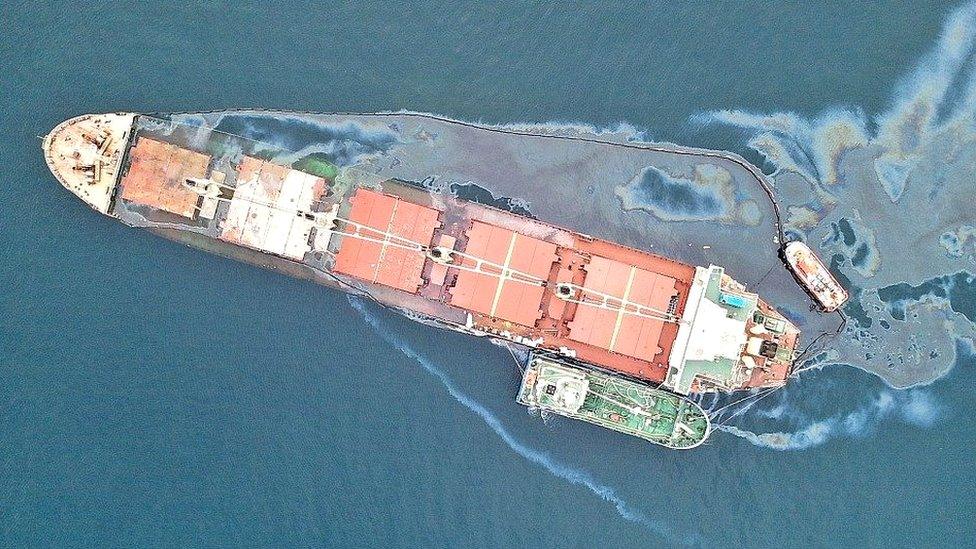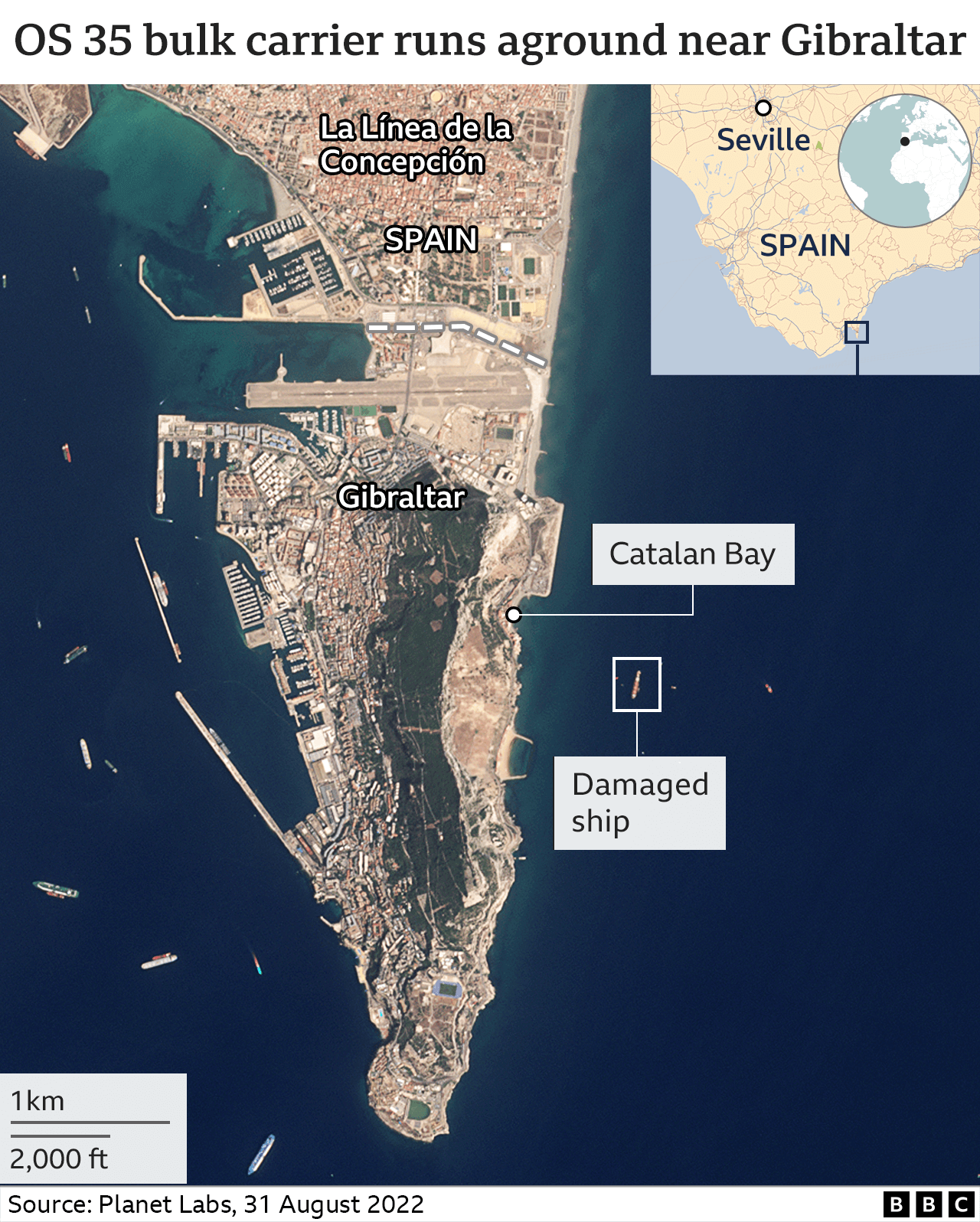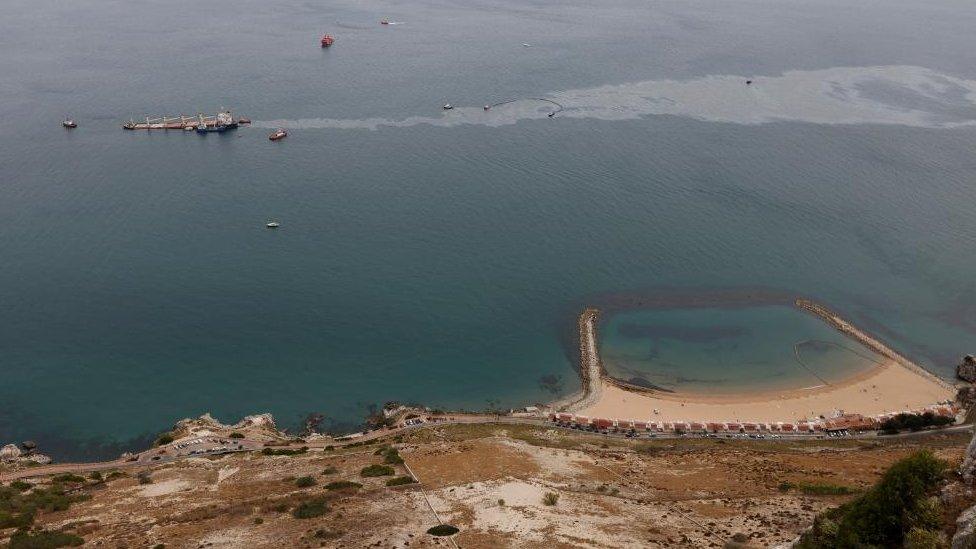Gibraltar collision: Race to remove fuel from stricken ship
- Published

The bulk carrier was run aground by authorities to prevent it sinking and causing a larger environmental crisis
Salvage teams have rushed to pump fuel off a grounded ship after it collided with a gas tanker off Gibraltar and began leaking into the sea.
Authorities said there had been a significant leak from the OS 35 on Thursday and conservationists fear major ecological damage.
Chief Minister Fabian Picardo described the next 48 hours as crucial.
By Friday afternoon, the British overseas territory said all the ship's 250 tonnes of diesel had been removed.
They were now starting to remove 215 tonnes of heavy fuel oil.
The chief minister said it was the most polluting fuel on board: "I am very concerned about a potential spill and will not be relaxed until the vessel is entirely removed."
Marine biologist Lewis Stagnetto, from the Nautilus Project, said the smell of fuel was tangible outside the harbour on Gibraltar's western shoreline on Friday.
Across the Spanish border, north of the Rock, the mayor of La Línea de la Concepción said oil had begun to reach the town's beaches, but it had come from the ship's machinery rather than its tanks.
No-one was hurt when the bulk carrier collided late on Monday with the tanker Adam LNG, which was carrying liquefied natural gas.
Although the OS 35 was damaged, Gibraltar authorities said the ship continued to leave the Bay of Gibraltar, heading for the Strait of Gibraltar which connects the Mediterranean with the Atlantic Ocean.


At that point, the captain indicated he was taking on water. Gibraltar officials said they decided to run the carrier aground, semi-submerged, to prevent it from sinking. Port authorities tried to repair the hull but it broke in two and by Wednesday some of the fuel had begun to leak into the sea from the tank's vents.
The captain is understood to have been arrested.
Although the ship was beached on the east side of the Rock off Catalan Bay, conservationists said the oil had seeped around the southernmost tip of the Rock towards its western shore, on the Bay of Gibraltar.
"Everyone's feeling quite shell-shocked at the moment," said Mr Stagnetto. Gibraltar's NGOs were looking for all types of animals that might have been affected, from limpets to seabirds such as cormorants, he added.
"The biggest problem with oil spills is that everyone focuses on the black stuff, but this is diesel flowing out. We did see some heavy fuel in little patches but overall the fuel is diesel. As it becomes more viscous it infects all animals and pollutes the ecosystem."
Booms have been deployed to contain the oil leak and a Spanish marine rescue crew has helped Gibraltar authorities use skimmers to recover the oil from the surface.
The chief minister said on Friday that the amounts of oil that had hit the shore, although regrettable, were fairly minor: "We are hopeful that a full clean-up can be achieved."
Spanish authorities were placed on alert and patrols were sent to coastal areas to monitor possible pollution in what is called the Bay of Algeciras in Spain.

Fuel oil can be seen streaming south from the stricken bulk carrier
Related topics
- Published29 August 2022
